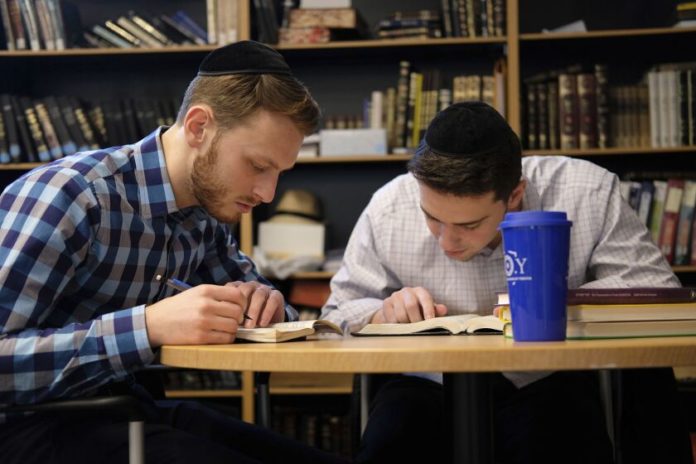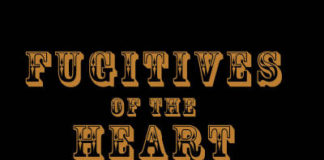The Supreme Court is once again weighing how to balance religious freedom and LGBTQ rights in a case that could hold ramifications for faith-based schools across the country.
The case, Yeshiva University v. YU Pride Alliance, pits Orthodox Jewish leaders against students seeking official recognition for a gay rights club. Yeshiva, which is in New York City, has asked the Supreme Court to intervene after a lower court said it must recognize the Pride Alliance club as the lawsuit plays out.
“It is a highly unusual situation,” said Eric Baxter, vice president and senior counsel for the Becket Fund for Religious Liberty, the law firm that represents Yeshiva. “I’m not aware of any other case where a religious school like this has been told what to do on its own campus.”
What’s the background of the Yeshiva University gay rights case?
Yeshiva’s legal battle began in April 2021, when a group of students filed a lawsuit challenging the school’s refusal to recognize YU Pride Alliance. They said Yeshiva leaders were violating a policy called the New York City Human Rights Law, which outlaws discrimination based on sexual orientation and gender identity.
“YU’s refusal to recognize the YU Pride Alliance sends a stark and painful message of rejection and non-belonging to its LGBTQ students and their allies. … An official LGBTQ student club is not only Plaintiffs’ right as students, it is necessary to their health and well-being on campus,” the lawsuit said.
School leaders responded by arguing that Yeshiva qualified for the policy’s religious exemption. In general, the government can’t forced a faith-based university to change its stance on LGBTQ rights, they said.
“Yeshiva, in consultation with its senior rabbis, concluded that the club would be inconsistent with the religious environment it seeks to maintain on campus,” Baxter said.
What’s it like at Yeshiva University?
As part of their defense, Yeshiva’s leaders have outlined the many religious aspects of campus life. The school’s application to the Supreme Court notes that students and faculty members are expected to live according to “Torah values” and that religious studies is a core part of the curriculum.
Although students can earn secular degrees, they also receive extensive religious training and have an assigned spiritual adviser, Baxter said. Class schedules respect the Sabbath and campus dining areas are kosher compliant.
“Yeshiva University … is like the BYU for Orthodox Jews. But even more intense,” he said.
The Supreme Court application says that school leaders have said no to student clubs focused on hobbies like shooting and gambling due to faith-related concerns.
“It also declined to approve a Yeshiva chapter of the Jewish “AEPi” fraternity, because it concluded that certain aspects of traditional fraternity life would be inconsistent with Yeshiva’s Torah values,” the application said.
What happened in the lower courts?
The trial court judge recognized that Yeshiva has many religious aspects, but said that it doesn’t qualify for an exemption under New York City’s human rights law.
The policy’s religious freedom protections were meant for institutions that don’t offer so many secular degrees, the judge said.
The school has appealed that decision, as well as an order stating that Yeshiva officials must formally recognize YU Pride Alliance as the lawsuit plays out. The Supreme Court application, filed Monday, specifically asks the court to overturn that order.
“The question is whether it has to immediately recognize” this student group, Baxter said.

Yeshiva University students Aaron Heideman, left, and Marc Shapiro study in the university’s library in New York on Thursday, Dec. 12, 2019.
Luis Andres Henao, Associated Press
Why does the Yeshiva lawsuit matter?
Yeshiva is arguing that the lower court decision puts faith-based schools across the country at risk. The Supreme Court has repeatedly said that religious freedom protections don’t end when a school starts offering some secular degrees, Baxter said.
“It’s really an absurd decision to say an organization as intensely religious as Yeshiva is not religious. It shows that something has clearly gone wrong,” he said.
Meanwhile, the students’ supporters argue that school officials are overreacting, and that Yeshiva can accept the Pride Alliance club without adopting new policies on LGBTQ rights.
“In framing this as a religious emergency that has to be stopped, to me, (Yeshiva is) demonstrating the very homophobia that they claim doesn’t exist on campus,” said Rachael Fried, executive director of JQY (Jewish Queer Youth), a nonprofit that supports Orthodox Jewish queer youth, to Religion News Service.
What will happen next?
The students’ response brief to the Supreme Court was due Friday afternoon, so the court should soon issue its decision on Yeshiva’s request for help.
Regardless of whether or not the Supreme Court intervenes, the school’s appeal of the original ruling will continue working its way through the New York legal system this fall, Baxter said.








